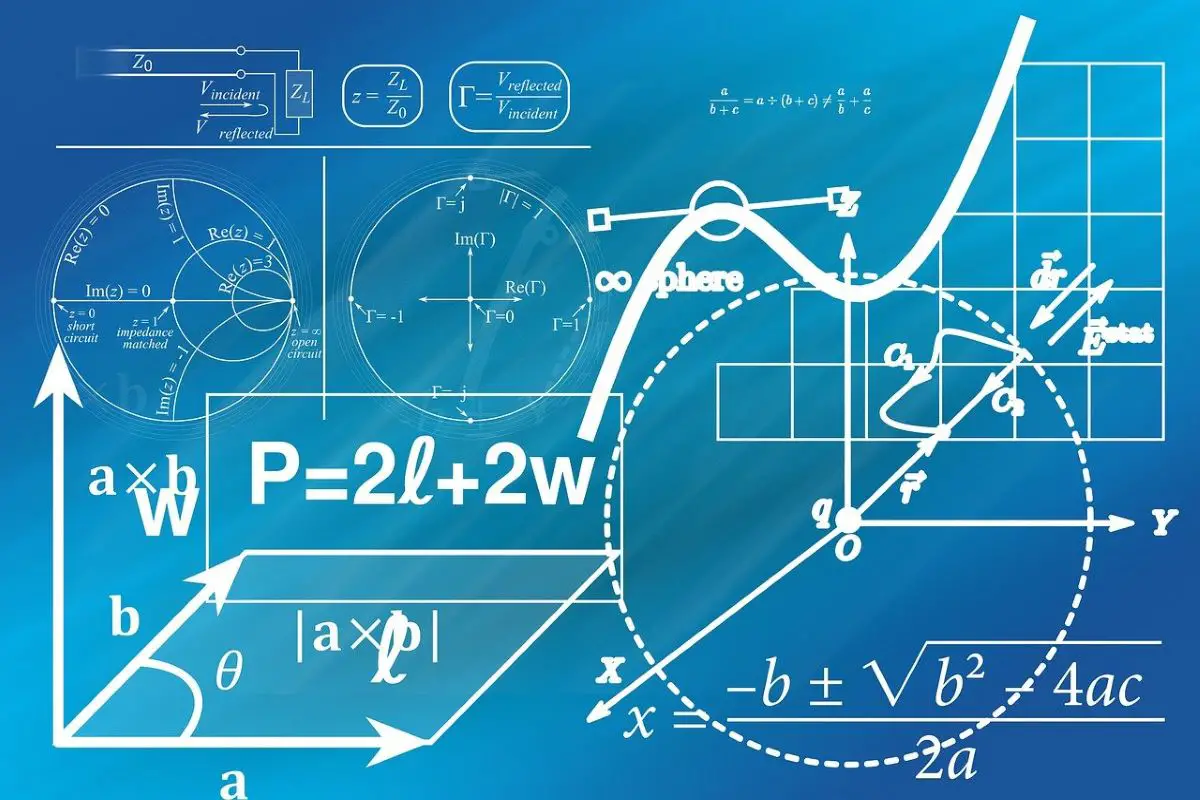You may hate mathematics back in school, but we must thank mathematics for all our progress today. Mathematics form the basics for almost everything in our lives, from money, electricity, and even our beloved gadgets. But then, how did mathematics start? Who invented mathematics?
Mathematics was not invented by a single person, but rather it was developed in general from ancient civilizations. The earliest proof of the use of mathematics was over 20,000 years ago. The Ishango bone found on the upper Nile river shows possible usage of sequences of prime numbers.
In this piece, let us delve into the question of who invented mathematics. We also explore how each civilization contributed to the development of mathematics.
We also provide answers to some questions about the history of mathematics, such as the father of mathematics and the significant figures advancing our knowledge of mathematics today.
Who Invented Math?
Mathematics was not invented by someone, but rather it is a collective knowledge developed by each civilization as they grow. The earlier proof of the use of mathematics points to the Ishango bone. The bone is 20,000 years old and may be showing usage of sequences of prime numbers.
Historians do not point to a single person as the originator of mathematics, as mathematics may have existed even in the prehistoric period before human writing was invented.
As a result, the only way scientists and historians can prove the usage of mathematics is to look at any ancient record of mathematics, in which the earliest found was the Ishango bones. The bone was found in the upper reaches of the Nile river and may be 20,000 years old.
There were a series of markings made on the bone. They were carved in three columns and ran along the whole length of the bone. Historians and mathematicians pointed out that the Ishango bone may be showing a tally count, meaning it could be the earliest demonstration of the usage of sequences of prime numbers. There were also opinions that the bone shows calculations of a 6-month calendar.
However, the earlier written form of mathematics refers to the ancient Sumerians from the Mesopotamian civilization. They developed a system of metrology as early as 3,000 BC. They were also found to write down multiplication tables on flay tables and dealt with division problems as early as 2,500 BC.
Here are some of the best math tutoring websites we have found if you are having trouble with math!
Which Civilization Contributed The Most To Mathematics?
Each ancient civilization contributed to mathematics in its own way. The Babylonians invented the sexagesimal numbering system. Indus civilizations invented the concept of 0, while the Chinese were one of the earliest to calculate negative numbers.
Many ancient civilizations in the world developed their knowledge of mathematics. In doing so, they contributed to the knowledge in different ways. This knowledge may be in the form of concepts to present numeral values, calculation methods, or the value of a certain constant such as π (pi).
Mesopotamian
The Mesopotamians were probably the earliest to use multiplication and division and solve geometric problems. Babylonian mathematics also invented the sexagesimal, or base-60 numbering system, which forms the basics of our modern time calculations (60 seconds equals 1 minute, 60 minutes equal 1 hour, etc.)
Egyptian
The ancient Egyptians were probably the first to use units of measurement. They were discovered when they described the measurement of the slope of a Mastaba. The earliest use of fractions could also be credited to the ancient Egyptians.
Indus
Indus civilization’s most significant contribution to the world of mathematics could be the concept of the number 0. Indian mathematician Brahmagupta also helped formalize the Hindu-Arabic numeral system, which is the number system used today all over the world.
Chinese
The Chinese civilization invented a rod numeral system, where a set of rods could be used to indicate numeral value. The Chinese may have also been the earliest to calculate negative numbers and perform calculations for Pascal’s Triangle centuries before Pascal himself calculated it.
Greek
Greek mathematics could be said to have advanced the knowledge of the Mesopotamians and Egyptians. Greeks were the first to use deductive reasoning in mathematics and advanced geometry calculations, resulting in calculations such as the Pythagorean Theorem. In fact, the term ‘Mathematics’ actually came from the Greeks.
Roman
Romans were a pragmatic bunch. Rather than being theoretical, they contributed to mathematics by applying it in constructions, surveying, accounting, and many more. Romans were the first to describe how to detect financial fraud, survey lands for road construction, and use odometers to measure distance traveled.
Islamic
The Islamic world has been credited for keeping the knowledge of mathematics alive, while places such as Greece and Rome were mired in the dark ages. Arabic mathematicians such as Al-Khawarizmi were credited with significantly expanding algebra knowledge. In fact, the term algorithm comes from his Latinized name, Algoritmi.
Who Is The Father Of Mathematics?
Although mathematics had been practiced well before him, Archimedes is called the father of mathematics. He was credited with the title due to his ability and contribution to mathematics. Some of these calculations are still used and taught even to this day.
Archimedes lived in Syracuse, an ancient Greek city. He dedicated his life to mathematics and also in service of his king, King Hiero II.
Archimedes is perhaps most well known for the creation of the Archimedes principle, in which he figured out a way to measure the volume of an oddly shaped item. Archimedes was also one of the closest ancient mathematicians to calculate the actual value of π (pi).
He has also been known to define the Archimedes spiral and devise a system using exponentiation to display vast numbers. He has also been a prolific engineer, creating objects such as the screw pump and compound pulleys.
Archimedes has also contributed to some principles in approaching calculations. One of them is the Method of Exhaustion. He refined it by utilizing the concept to calculate the area inside a circle.
As a result, Archimedes is honored throughout history, even today. Aside from the title Father of Mathematics, he was also credited by many future mathematicians, as well as having credits and statues of himself built all over the world.
Archimedes’ work has also inspired current generations of mathematicians who continue to carry the torch and drive to develop the knowledge.
Who Are The Most Influential Mathematicians Today?
Many people credit Terence Tao, Keith Devlin, or Andrew Sarnak as some of today’s most influential mathematicians. They have won many awards and contributed to the knowledge of mathematics in various fields of specialties.
Terence Tao
Australian by birth, Terence was a child prodigy, winning a medal in the International Mathematical Olympiad at the age of 10. He graduated with a Ph.D. in mathematics at the age of 20. When he was 24, he was appointed full professor at UCLA, becoming the youngest person ever to do so in the history of UCLA.
Terence is known for his work on partial differential equations, or the mathematics of change. Terence has also won multiple awards and was inducted into the American Academy of Arts and Sciences.
Keith Devlin
Keith received his Ph.D. in Mathematics in 1971 and has authored over 30 books and 80 research articles on mathematics. Keith’s expertise is in topics such as models of reasoning, theory of information, and mathematical cognition.
Keith is also a multi-award mathematician, winning the Carl Sagan Prize in 2007. These days, Keith focuses his effort on applying media and technology to help people to learn about mathematics better.
Andrew Sarnak
Andrew Sarnak received his Ph.D. from Stanford University in 1980, with expertise in analytic number theory. His contributions have helped many scientific areas, including physics and computer science.
Andrew invented a field of mathematics known as Arithmetical Quantum Chaos. He also contributed to the eventual solution of Hilbert’s Eleventh Problem, a series of unsolved mathematical problems from 1900.
 Being Human
Being Human





